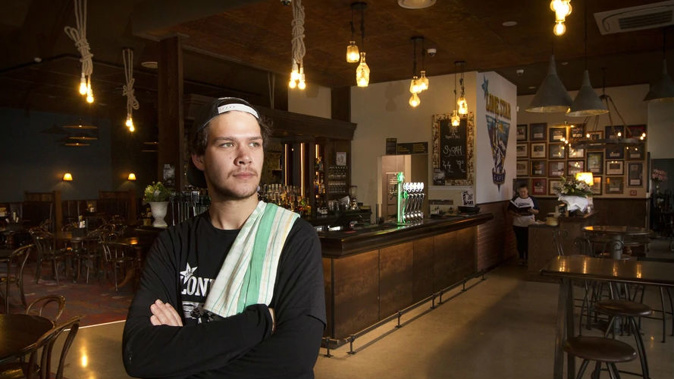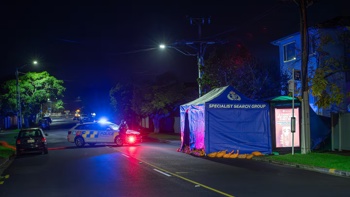
With demand growing for skilled hospitality workers around the country - one Rotorua restaurant owner believes Kiwis are losing their work ethic.
New data shows a large increase in hospitality job vacancies across the country and Rotorua's Restaurant Association president agreed there was "definitely a shortage of skilled staff".
The latest Jobs Online report issued by the Ministry of Business showed vacancies in hospitality and tourism were up 1.6 per cent from April, despite it being a traditionally quiet time of year.
For the past year, the number of tourism and hospitality jobs advertised online has increased by 15.8 per cent, one of the biggest increases of all industries measured.
Sharon Wallace, Rotorua's Restaurant Association president and Rotorua Hospitality board chairwoman, said she got daily phone calls from people needing more staff.
"There is a real shortage," she said.
"There doesn't seem to be enough employees out there to fill the demand and the requests for staff have increased significantly."
Advertisements for chefs were up 18 per cent in May compared to the same time last year, while hotel and motel managers were up 11 per cent and coach driver vacancies were up 64 per cent.
Wallace said times had changed, that nowadays people had other priorities and "want a life".
"From an industry perspective they need to realise that people want things like a weekend off to spend with their families," she said.
"People don't want to live just to work. Most people will do a good job, but that cuts both ways."
There were also significantly more advertised vacancies for lower-skilled roles like housekeepers up 61 per cent, cooks up 40 per cent, bar attendants and baristas up 18 per cent and kitchen hands up 20 per cent.
Lonestar Rotorua owner Andy Allan said for a recent vacancy there were more than 50 applicants, but only five made it through to a trial.
"They either didn't have the right visa, the right qualifications or the right attitude," he said.
"It can be hard to find good staff in hospitality. I am looking for good communication and a willingness to work, unfortunately a lot of Kiwis are losing that work ethic."
There will be greater difficulty employing foreign workers with new immigration policies taking effect on August 14.
Skilled migrants, like those in the hospitality industry, will now have to earn over the $48,859 threshold to qualify for a visa.
Allan said people always thought of hospitality as a "backup plan" industry.
"If they show up and work as a dishwasher I will always work with my staff to help them progress through this industry," he said.
"If you're finishing school and you want to work in this industry, get your qualification, but while you're studying get into a kitchen for practical experience.
Hayden Wahanui began his career in the hospitality industry at 15 and now works as a commis chef at Lonestar Rotorua.
"I started in a little restaurant, they gave me a job as a dishwasher and kitchen hand," he said.
"I worked my way through the ranks until they let me help cooking the pizzas and burgers."
Wahanui said a lot of people told him they would not like the late nights and unpredictable hours and that put them off the industry.
"You don't know if you like it unless you've given it a go," he said.
"I've never had issues finding work. I've met more people than I can imagine and it's almost like one big family. You're going to get nowhere in life doing nothing."
Rotorua Mayor Steve Chadwick said the council had been hearing for a long time now that the hospitality industry was doing very well.
"Reports of increased job vacancies confirms it continues to be a busy industry looking for people with all types of skills," she said.
"We no longer have clear "off-seasons" with visitors - both domestic and international - coming to the district year-round, and in increasing numbers."
Chadwick said Rotorua had always needed hospitality workers and it made sense that as the number of visitors increased, demand for staff did also.
"I know our local tertiary trainer Toi Ohomai Institute of Technology is very focused on ensuring they produce work-ready staff to meet the ongoing needs and demands of the industry."
Toi Ohomai head of department tourism and hospitality Bart Vosse said for the forecast growth in Rotorua's market they were falling short in the number of graduates they produced.
"The forecast growth by 2025, we're about 40 per cent short," he said.
"If the industry continues to grow how we believe they will, that shows how short we are."
Vosse said the feedback he heard from industry was that they needed more domestic people working in that space.
"We've gone backwards, to go forwards. So we now offer programmes right from Year 10," he said.
"We are priming students for the opportunities that await them in the industry and that is giving us greater transfer rates and a larger domestic pool."
-NZ Herald
Take your Radio, Podcasts and Music with you









